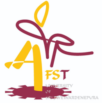Digital revolution in food management
The increasing human population necessitates more efficient and sustainable food management practices. Through the sustainable management of food, we can conserve resources for future generations and also provide access to food for those who do not have enough to eat.
Novel approaches based on digitalization are required to the world to meet the present and future needs effectively. The innovative approach leverages the power of modern technologies, such as the Internet of Things (IoT), artificial intelligence, blockchain, data analytics and mobile applications to improve efficiency and sustainability in the food industry.
The digital traceability systems use technologies like blockchain to track the journey of food products from their manufacturer to the consumer. These systems record and store crucial information such as production details, transportation routes and storage conditions to ensure transparency and food safety. By enabling stakeholders to trace the origin of ingredients, digital traceability helps identify and address issues like foodborne illnesses and supply chain inefficiencies.
The rise of food delivery apps and meal planning platforms have transformed the way that consumers interact with food. Many modern food delivery apps provide order tracking features allowing customers to monitor the status and location of their meals in real time. This way follows the most efficient routes, reducing delivery times and operational cost. A food delivery app records and stores each user’s order history. Analyzing this data allows to understand customer preferences including their favorite dishes, preferred cuisines and ordering frequency. It also helps to reduce food waste.
Digitalization is increasingly becoming a key factor in shaping modern supply chain. Using real time data analysis, companies can rapidly respond to market changes and adjust their supply chain strategies corresponding to the market fluctuation. In other hand, digital technologies such as Internet of Things (IoT) and cloud computing have made information flow smoothly between different parts of the supply chain. In addition to that, the application of technologies like blockchain increases trust among supply chain parties by providing a shared immutable data platform where all participants can access real time, consistent information which supports more efficient collaborative work.
Enterprises can use these technologies to achieve optimal resource allocation, increase operational flexibility, reduce waste and improve the efficiency and benefits of the entire supply chain.
Smart or Intelligent Packaging (IP) refers to packaging technologies that incorporate sensors, indicators (example: time, temperature, gas, pH, color) or other advanced features like data carriers to monitor, trace and communicate food quality. While technology is not designed to extend the shelf life of food products, smart IP can avoid unnecessary food waste by providing more accurate and objective information to consumers and distributors about the actual quality status of food products.
Digital tools using Internet of Things (IoT) technologies are used to improve the storage of foods. Standalone fridge cameras can be fitted in regular fridges and be programmed to send images to smartphones through an internet connection. This allows the consumers to know what is stored in the fridge even when they are away from home, enabling better planning of food shopping.
Digitalization in food management offers numerous benefits and opportunities for improving efficiency, sustainability and customer satisfaction. By leveraging technologies such as AI, IoT and data analytics, business can streamline operations, reduce waste, enhance food safety and personalize customer experiences. However, challenges like data privacy concerns and the digital divide must be addressed overall. Embracing digitalization in food management holds great promise for transforming the industry towards more sustainable and customer centric future.
References:
https://www.eitfood.eu/blog/how-can-digital-traceability-increase-trust-in-the-agrifood-industry
https://www.intelivita.com/in/blog/benefits-of-having-a-food-delivery-app/
https://www.ncbi.nlm.nih.gov/pmc/articles/PMC11020941/
R.M. Imashi Upekha Rathnayaka (2nd Year)
